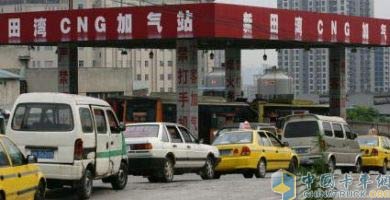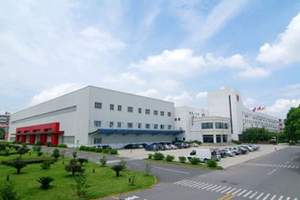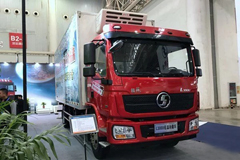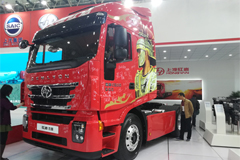Fuel Taxes in China and Beijing's Balancing Act
China is preparing to implement a system of fuel pricing and tax reform on Jan. 1. The new policies have drawn criticism during their public comment phase, but the government has worked to deflect most complaints, and the precipitous drop in global crude prices in recent months has given Beijing the perfect opportunity to finally implement the reforms.
 |
But while the reforms address some of the old system's problems, Beijing still must balance the sometimes competing interests and influences of the state budget, the national oil companies and the general population.
Under the new plan, the tax on gasoline will rise from 0.2 yuan (3 US cents) per liter to 1 yuan (15 US cents) per liter, while the tax on diesel will grow from 0.1 yuan (about 2 US cents) per liter to 0.8 yuan (12 US cents) per liter. The new fuel taxes will replace a handful of transportation-related fees and allow the gradual phasing out of several toll booths on second-tier highways. The taxes will be used to fund transportation infrastructure maintenance and development and provide subsidies to low-income and rural consumers, according to information released by the NDRC, Ministry of Finance, Ministry of Transport and Tax Bureau.
The biggest complaint from citizens, according to Chinese polls, is the size of the change in the fuel tax. To counter this criticism, and to lessen resistance to the changes, Xu Kunlin, deputy chief of the NDRC's pricing department, said Dec. 9 that consumer fuel prices will actually drop when the new taxes are implemented Jan. 1. This is because fuel prices, raised over the summer, would finally be lowered in line with falling global crude prices. Under the new system, fuel prices at the pump will be based nominally on the cost of crude plus a built-in profit margin for the oil companies, rather than effectively set by the state regardless of external factors.
If the current gasoline price were reverse-calculated under the new pricing structure, it would reflect an input of crude prices at around $83.50 per barrel, nearly twice the current price of just over $42 per barrel. Thus, Xu noted, when the new pricing measures go into effect Jan. 1, even with the higher taxes, the price per liter to the consumer will fall.
Consumer price is a major concern for the Chinese government due to the potential impact on social stability, and Beijing has long subsidized fuel costs. But with Chinese consumption rising and automobile use booming, the government is finding it difficult to maintain stable subsidized prices amid the drastic changes in global crude prices over the past several years. This became a particularly acute problem in 2008, as oil prices soared above the $140 per barrel mark. An estimate by China International Capital Corp. (CICC) during the peak of international oil prices in August put government expenditures on fuel subsidies at some 871.1 billion yuan (US$126.8 billion) for 2008, just shy of 3.5 percent of China's gross domestic product (GDP), compared to just 229 billion yuan (US$33.3 billion) - less than 1 percent of GDP - in 2007.
For Beijing, these sorts of numbers are becoming unsustainable. Furthermore, Chinese officials, particularly in urban areas, have been struggling to keep up with the changing dynamics of transportation infrastructure as automobile use rises rapidly. Shifting to a gasoline tax rather than annual taxes for automobile owners or toll collection on highways running between cities will more accurately reflect usage, and it could actually increase overall revenues collected. Plus, if it takes a few more cars off the road, Beijing and other major cities will not mind at the moment. (In fact, several cities have been implementing policies designed to reduce congestion and pollution by limiting automobile usage.)
But there is a third factor Beijing must consider: China's oil companies. No longer have small arms of the state drilling in Manchuria, Chinese oil companies grown in size and importance, both at home and abroad. (Both China Petroleum & Chemical Corp. and the China National Offshore Oil Corp. have major offices located across the street from China's Foreign Ministry.)
China's oil companies have become increasingly self-assured in their actions over the past few years, to the point of occasionally offering active resistance to Beijing's requests. This has been seen at times in overseas acquisitions that did not necessarily match central government plans, and, earlier this year, when the oil companies pressed Beijing to raise consumer fuel prices. When Beijing delayed for fear of the social impact, the Chinese companies simply slowed or shut down some of their refining operations, complaining that their margins had been squeezed to an unbearable point. They budged only when Beijing offered direct subsidies to the oil companies themselves.
Beijing remains stuck between the costs of continued subsidizing and the risks of letting fuel prices reflect global market prices - all while keeping the oil companies in line. The latest reforms do not alter this, but they might make it a little easier for Beijing to implement gradual changes in fuel prices, rather than wait until the pain of subsidies and pressure from the oil companies demand another instantaneous large jump.
Views:0
- Weichai Releases World's First Commercialized High-power Metal-supported SOFC 2023-03-23
- DHL China Launched a Pilot Project for Hydrogen-fueled Trucks 2022-09-13
- Order Volume for Hydrogen Heavy Trucks in Two Months Surpassed the 10,000 Mark 2022-09-09
- Additional 1100 Units! Weichai’s Hydrogen Fuel Cell Are On a Fast Track 2022-09-02
- Order Summary: Hydrogen Fuel Cell Trucks Were Delivered Successively in China 2022-08-24
- 100 Jiefang Hydrogen Fuel Cell Heavy Trucks Delivered 2022-08-17
- First 24 Hydrogen Sanitation Vehicles Put into Use in Guangzhou 2022-08-11
- 410 Units of SAIC Fuel Cell Vehicles Were Put into Commercial Use in Shanghai 2022-08-05
- Yuchai Ignites China’s Largest and Most Powerful Hydrogen-fueled Engine 2022-07-14
- First Hydrogen Fueled Heavy-duty Trucks Put into Service in Beijing, China 2022-07-12
Submit Your Requirements, We Are Always At Your Service.
- World’s First All-electric Scania Car Transporter Goes into Service
- China’s First Mining Specialized Remote Sensing Satellite Launched
- SINOTRUK Delivers Full Year 2022 Results, Heavy Truck Sales Down 52.50%
- FOTON and Cummins Team up to Build a New Engine Plant in Thailand
- SANY Awarded as 2022 Forbes China TOP 50 Sustainable DEV Industrial Enterprises
- Daimler Trucks and Buses Signs Deal with XCMG Fire Fighting
- FAW Jiefang Sichuan Branch Was Officially Established
- Bus & Truck Expo Set to be Held in May 2023
- Yutong, SCG Signed MoU for Green Mining in Thailand
- CAT Displays Its First Battery Electric Large Mining Truck
- Half Year Review of Commercial Vehicle Sales
- China Exported 63,000 Trucks in May, Up 33% YoY
- Top 10 Best-selling Battery-swapping Heavy Trucks in China in April
- China Exported 158,000 Trucks in Q1, Up 41% YoY
- China’s Truck Exports Grew by 43.8% YoY to 46600 Units in Feb., 2023
- China’s Heavy Truck Sales Rising 29% YOY to 77200 in Feb
- China Exports 567,000 Trucks in 2022, Hitting a New High in a Decade
- China’s Pickup Exports Jumped 65% YOY in 2022
- China's Truck Exports Grew by 42% YOY to 53,000 Units in November
- Heavy Truck Sales in China Fell by 9% YoY to 46000 Units in Nov.











